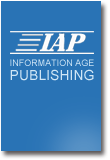
Contemporary Perspectives on Problem-Based Language Learning
Edited by:
Paul Chamness Iida
Mary Frances Agnello, Akita International University
A volume in the series: Contemporary Perspectives on Problem-Based Learning. Editor(s): Colette M. Taylor, Seattle University. Trenia L. Walker, University of New Mexico.
Call for Chapters
About the Theme
Problem-based learning is a method or approach to learning in which students are engaged in the learning process. It is usually student directed, and the teacher facilitates the students’ investigation of a particular problem or inquiry. Although language teachers and language teacher researchers have engaged in problem-based language learning for decades, we lack a clear understanding of what problem-based language learning looks like, how it is implemented, what struggles language teachers and students face, among others.
The goal of this volume is to be a venue to explore many current perspectives on problem-based language learning, from empirical data, to theoretical considerations, to putting the theory into practice in practical classroom applications. Chapters may examine K-12, higher education, and/or adult education contexts, specific institutions, countries, or regions, among just a few considerations.
Possible topics might address one or more of the following (but not at all limited to these topics):
• Effectiveness of problem-based language learning over other approaches
• Contemporary theoretical applications of problem-based language learning
• Attitudes toward problem-based language learning
• Practical applications of problem-based language learning
• Challenges in implementing problem-based language learning
• Policy issues with problem-based language learning
• Advantages and/or disadvantages of problem-based language learning
• Issues that non-language faculty face when working in problem-based language learning
• Issues in learning content in problem-based language learning contexts
• Teacher training/education for problem-based language learning context
Timeline:
Brief description of intent to submit: October 31, 2018
Initial drafts of chapters due: January 31, 2019
Feedback for revisions sent to authors: February 28, 2019
Final chapters due from authors: March 31, 2019
Volume submitted for publication: April 30, 2019
Please send a brief message to the editor by October 31, 2018 with a brief description of your intent to submit a chapter (working title, short description/abstract). Although chapter length is flexible, manuscripts should ideally be between 6,000 and 7,500 words (20-25 pages, double-spaced) and prepared following APA 6th edition formatting guidelines. Full manuscripts should be submitted by January 31, 2019 to Paul Miller at pchamness@gmail.com. All chapters will go through a blind review process before a decision to publish is made.

